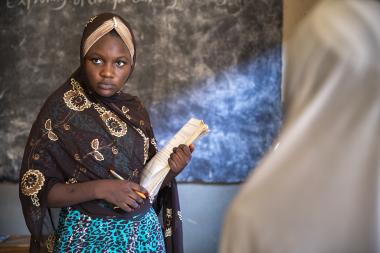SPARC partner publication
Pathways to resilience: Supporting adolescent girls in East and West Africa’s pastoral areas
This report explores two questions: Why invest in adolescent girls’ wellbeing and resilience in the fragile drylands of East and West Africa? And what works to support their wellbeing and resilience?
Publisher Mercy Corps
In the climate- and conflict-affected pastoral regions of East and West Africa, adolescent girls face intersecting risks, from displacement and resource scarcity to early marriage and social exclusion, that undermine their well-being. These challenges are especially acute in dryland settings, where traditional support systems are strained and access to formal services is limited.
Investing in adolescent girls is not only a matter of equity but also yields broad social and economic returns. Evidence demonstrates that girls’ access to education, health services, and economic opportunities is associated with delayed marriage, reduced fertility, higher household income, and intergenerational gains in health and education outcomes. Strengthening enabling factors such as supportive households, community networks, and inclusive policies can amplify these impacts, helping girls navigate crises and contribute to their resilience. Yet in pastoral and fragile settings, the evidence on effective interventions and pathways to resilience remains limited.
This report synthesises findings from a desk review of 53 sources and 11 key informant interviews with researchers, evaluators, and programme implementers, guided by two core questions: Why invest in adolescent girls’ well-being and resilience in fragile pastoral areas of East and West Africa? And what works to support their well-being and resilience in these contexts? Findings highlight both promising strategies and persistent gaps, with most interventions remaining short-term, narrowly focused, or poorly adapted to mobile and displaced populations. Long-term tracking of outcomes is rare, and resilience pathways are incompletely documented.
Read the report here.
